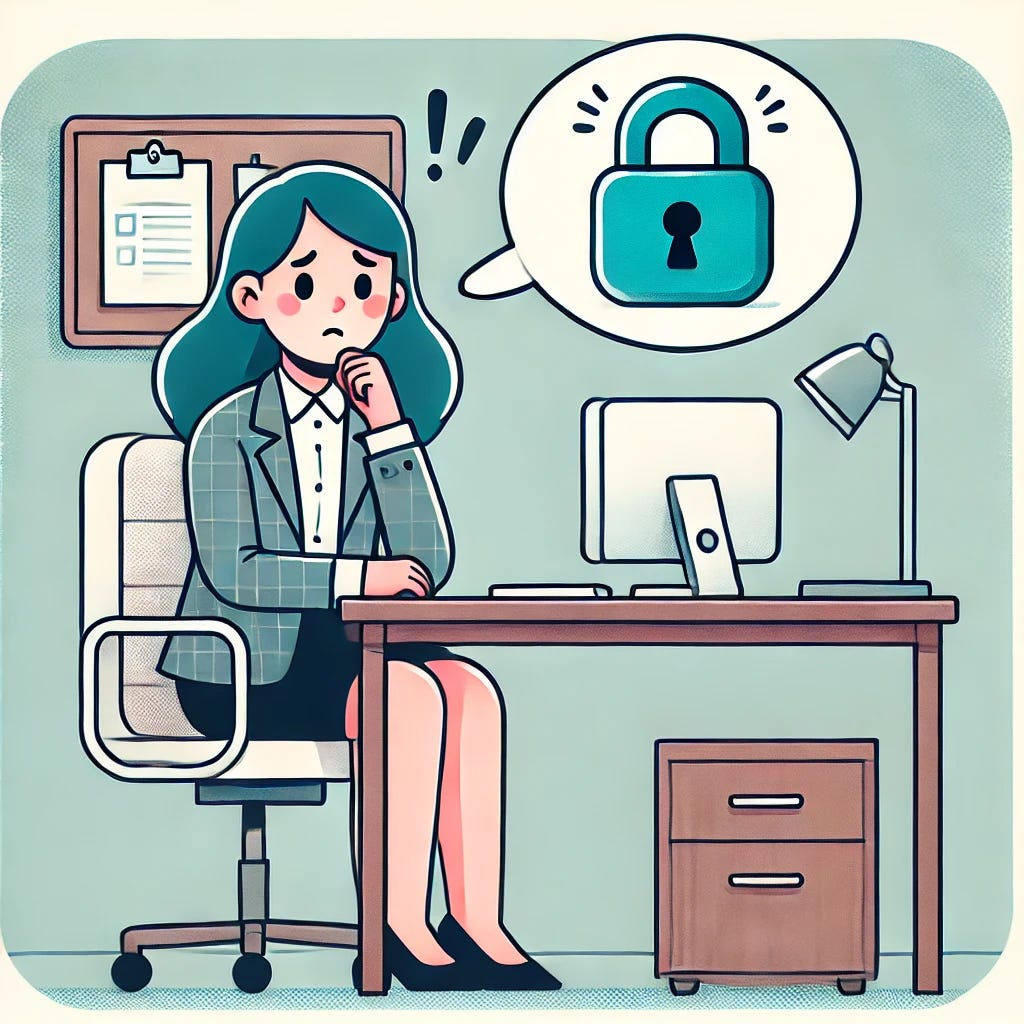Why You Don’t Feel Safe in the Workplace
There’s an unspoken unease in modern workplaces. It can feel like a low hum of anxiety from knowing you’re not entirely safe. Not physically, but psychologically.
Psychological safety is the belief that you won’t be punished or humiliated for speaking up with ideas, questions, or concerns. Without it, workplaces breed anxiety, disengagement, and burnout. You hold back ideas to avoid criticism or stay silent to dodge labels like “bad culture fit” or “not collaborative.” In doing so, you send yourself a damaging message: you can’t be yourself and still succeed.
Who benefits from this? Your employer. Why can I confidently say this? Becuase your
When you silence your thoughts to fit in, you create a petri dish for self-doubt and resentment. That pattern doesn’t serve you long-term.
I’m not suggesting you quit your job tomorrow, but I am saying this: the sooner you recognize how your workplace shapes your perception, the sooner you can reclaim success on your own terms.
The Danger of No Psychological Safety in the Workplace
When you can’t speak or behave authentically at work, it causes:
Teams full of “yes-men”
Resentful employees who disengage over time
A culture where fitting in matters more than honest communication
Long-term issues like distrust, retaliation, or extreme ideological conformity
Creating psychological safety isn’t just your company’s job – it’s your responsibility too.
Psychological Safety is Beat by Ignoring Social Norms
I could give you a polished, corporate-friendly five-step framework to fix this. I could even pull boilerplate advice from this boring McKinsey report on ideological safety, ask ChatGPT to repackage it for this Substack and a few LinkedIn posts, and call it a day. I’d probably get some likes and kudos from people I haven’t worked with in years.
In reality, no one would actually implement it. They’d just feel better for having read it.
And that’s the issue with a lot of these career conversations today. It’s brand-safe, corporate loving discourse that still doesn’t tell the individual employees that they have the power.
My actual solution: waiting for your employer to “save” you is not empowerment. Companies thrive by controlling what’s discussed and providing the illusion of safety, not the real thing. True autonomy starts when you feel comfortable going against social norms.
The more you trust yourself to stand out, the more freedom you gain – in your career and your life. Many people who hear my message first improve their careers and, months later, find themselves making life-changing decisions: moving cities, leaving relationships, or setting boundaries they never thought possible.
Sponsors of this Substack
LazyWork
Keep your work laptop active and simulate working without getting caught by pesky time trackers.
Ra Optics
Shop my yellow lens glasses for THE best blue light blocking and mood boosting and the cutest look. Use code: ANTIWORK for 10% off
(I am gifted dozens of glasses all the time these are hands down my favorite!!!)
Notion
Notion is the free, ultimate all-in-one productivity tool that helps you effortlessly organize your life, work, and goals in one place!
You.com
You.com > ChatGPT
Free plan: Get 4 different AI modes (Research, Genius, Test, GPT-4)
Paid plan: pay one subscription and receive premium subscripts to Chat GPT-4o, Claude, and much more!
An Example of Me Going Against the Social Norms
Early in my career, I wasn’t the bubbly, wide-eyed new hire people expected. I was labeled “cold” or “awkward” because I didn’t smile constantly or engage in performative small talk. My boss even asked, “Do you enjoy working here?” – as if my lack of cheer implied dissatisfaction.
The truth? I did enjoy my job, but I refused to burn myself out cosplaying someone I wasn’t. Forcing myself to act bubbly would only teach me that my authentic self wasn’t good enough to succeed – and that doesn’t serve anyone.
Small Steps You Can Take Today to Remove Social Norms
Here’s a small, actionable step to start:
Scenario: Your team only discusses raises during annual performance reviews. You believe you deserve a raise sooner.
The norm: Stay quiet to avoid seeming “demanding.”
The shift: Ask for a dedicated meeting to discuss your performance and a potential raise.
Why does this matter? Because one small act of advocating for yourself can lead to a real change – a raise that improves your life. And even if you’re rejected, that’s valuable information too. You’ll know where you stand and can decide your next move: staying, looking elsewhere, or trying again.
We often say “no” to ourselves before anyone else does, trapped by imaginary limits. Break through the social norms, trust yourself, and take action – because you know what’s best for you, far better than anyone else ever will.






Watching the video, I also thought about another contrast between going solo and the corporate 9-5. In corporate, there's seems to be these varying degrees of "keeping up with the jones's" where you have to keep up with certain financial standards whether or not it's something you really value. Going solo, there tends to be more acceptance in variation. If you want to be a minimalist, go for it. If you want to more for yourself, go for it. You can do as much or as little as you want. You don't have to join the country club or buy the new car because your coworkers did. But if you want to, that's cool too.